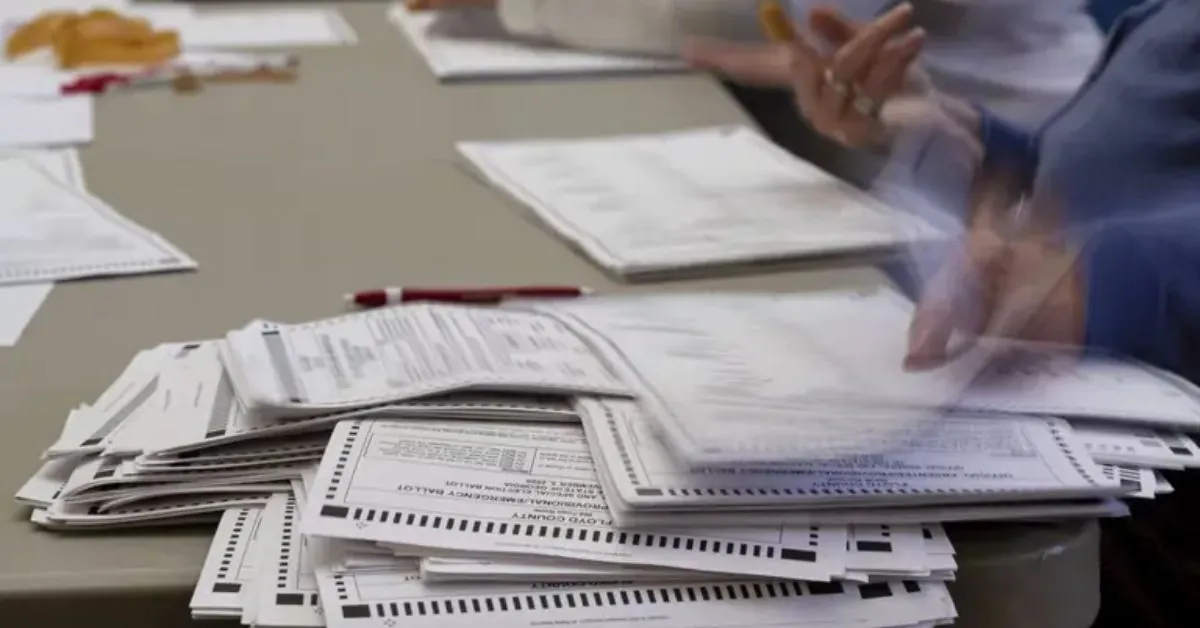Arizona officials are currently conducting an investigation into a longstanding issue that has enabled thousands of residents to vote for several years, despite not providing proof of citizenship during their initial registration.
According to the Washington Post, attorneys investigating the issue on behalf of Democratic Secretary of State Adrian Fontes revealed that Arizona officials had identified this as a “problem” as early as seven years before it became public.
State law mandates that voters must furnish proof of citizenship, such as a passport or birth certificate, during the registration process for state and local races. However, in the lead-up to the 2024 election, county and state officials made a startling discovery – numerous voters had been participating in the state’s elections for several decades without providing any proof of citizenship.
However, according to state records, staff in both Republican and Democratic administrations in Arizona failed to understand why the state’s motor vehicle database identified noncitizens as eligible to vote.
Arizona residents can register to vote when they obtain their driver’s license, which typically requires proof of citizenship. Driver’s licenses issued after 1996 serve as valid proof of citizenship. However, a system error mistakenly identified the initial group of voters with pre-1996 licenses as eligible to vote in state and local races, as reported by the Associated Press.
The state of Arizona has encountered numerous obstacles in its efforts to enforce the requirement of proof of citizenship for voting among its residents. Back in 2004, voters expressed their support for a measure that mandated proof of citizenship. However, after nearly ten years of ongoing legal battles, the Supreme Court ultimately decided in 2013 that a federal law prohibited Arizona from imposing the requirement of proof of citizenship for voting in presidential and other federal elections.
Arizona has implemented a dual-registration system in order to adhere to the ruling. Individuals who provide citizenship documents will receive full ballots that encompass local, state, and federal races. On the other hand, those who do not provide the necessary documents will only receive ballots that feature races for federal offices.
A few voters were mistakenly labeled as having submitted proof of citizenship while obtaining their driver’s licenses. The errors occurred during the initial license issuance, renewal, and voter registration processes. This issue came to light in 2017, during the tenures of Governor Doug Ducey (R-AZ) and Secretary of State Republican Michele Reagan, as revealed in Fontes’ investigation.
Officials at that time acknowledged that there were no records available to explain the basis for classifying a voter as a citizen.
“I wish I could be of more help but today we do not make it a practice to ask certain people for proof of citizenship if they have already had a license for 20+ years,” a Motor Vehicle Division employee wrote at the time.
According to a member of Reagan’s office, the situation was deemed as “a problem” that required further discussion. Another staffer also expressed their hope that this occurrence would be minimal.
An estimated 218,000 individuals are believed to be affected by this error. Fontes’s office is currently collaborating with county election officials to create a website where affected voters can electronically update their records before the upcoming municipal elections in early 2025.
In 2020, during the tenure of Secretary of State Katie Hobbs, who is now Arizona’s governor, her employees made a significant discovery. They found out that a noncitizen had received the wrong ballot through the mail. This revelation came to light when a man contacted Hobbs’ administration, informing them that his mother-in-law, who was not a citizen, had been sent a mail-in ballot. Hobbs’ staff promptly informed the Maricopa County Recorder’s office, which was headed by Fontes at the time.
“We’ll reach out to the son-in-law and get this resolved,” a county recorder employee wrote back to the secretary of state’s staff.
According to Fontes, he cannot remember being made aware of the issue at the recorder’s office. He also acknowledged that his predecessors did not take sufficient action to resolve the problem or highlight any underlying systemic issues with record-keeping.
“This doesn’t just pertain to voter registration,” he said. “It pertains to any educational benefits, any health care benefits. Every state benefit that relies on residency or citizenship is reliant on MVD data — this is an MVD issue. I can’t tell you how many state agencies use motor of the motor vehicle division database and their records and rely on the accuracy of those records, which we know we can’t completely rely on at this time.”

